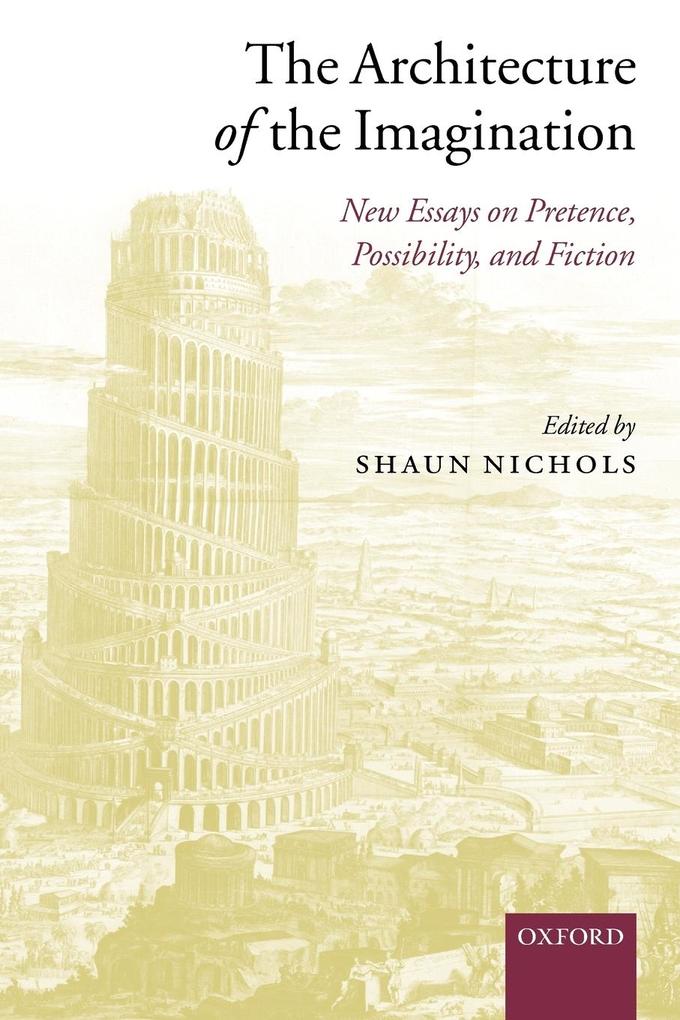
Zustellung: Mo, 14.07. - Do, 17.07.
Versand in 5 Tagen
VersandkostenfreiBestellen & in Filiale abholen:
This volume brings together specially written essays by leading researchers on the propositional imagination. This is the mental capacity we exploit when we imagine that Holmes has a bad habit or that there are zombies. It plays an essential role in philosophical theorizing, engaging with fiction, and indeed in everyday life. The Architecture of the Imagination capitalizes on recent attempts to give a cognitive account of this capacity, extending the theoretical picture and exploring the philosophical implications.
Inhaltsverzeichnis
- 1: Shaun Nichols: Introduction
- The nature of the imagination
- 2: Tim Schroeder and Carl Matheson: . Imagination and Emotion
- 3: Alvin Goldman: Imagination and Simulation in Audience Responses to Fiction
- 4: Adam Morton: . Imagination and Misimagination
- 5: Deena Skolnick and Paul Bloom: The Intuitive Cosmology of Fictional Worlds
- Pretence
- 6: Peter Carruthers: Why Pretend?
- 7: Gregory Currie: Why Irony is Pretence
- Imaginative resistance
- 8: Kendall Walton: . On the (So-Called) Puzzle of Imaginative Resistance
- 9: Tamar Szabó Gendler: Imaginative Resistance Revisited
- 10: Jonathan Weinberg and Aaron Meskin: Puzzling Over the Imagination: Philosophical Problems, Architectural Solutions
- Imagination and possibility
- 11: Christopher Hill: Modality, Modal Epistemology, and the Metaphysics of Consciousness
- 12: Shaun Nichols: Imaginative Blocks and Impossibility: An Essay in Modal Psychology
- 13: Roy Sorensen: Meta-conceivability and Thought Experiments
Produktdetails
Erscheinungsdatum
07. September 2006
Sprache
englisch
Seitenanzahl
290
Herausgegeben von
Shaun Nichols
Verlag/Hersteller
Produktart
kartoniert
Gewicht
445 g
Größe (L/B/H)
234/156/16 mm
ISBN
9780199275731
Entdecken Sie mehr
Pressestimmen
"While the simulation theory/theory-theory debate over mindreading informs several of the chapters, The Architecture of the Imagination expands the discussion of imagination beyond the confines of this debate. It is the only collection on anyone interested in the topic. The essays provide a valuable overview of current work on the propositional imagination and insight into its potential philosophical significance. They also indicate the ways in which philosophical, psycho9logical, and neuroscientific considerations can illuminate each other. "This collection demonstrates the way in which essays that are both empirically informed and philosophically sophisticated can greatly improve our understanding of the imagination."
Bewertungen
0 Bewertungen
Es wurden noch keine Bewertungen abgegeben. Schreiben Sie die erste Bewertung zu "The Architecture of the Imagination" und helfen Sie damit anderen bei der Kaufentscheidung.








